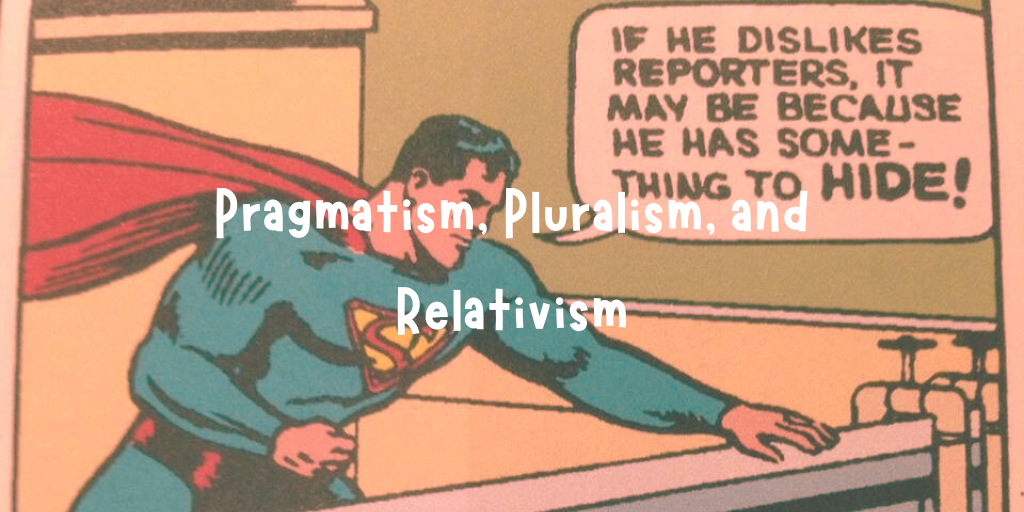Tag: Epistemic Institutional Design
-

Pragmatism, Pluralism, and Relativism
It’d be nice if the folks who don’t believe in global warming weren’t polluting the same world as the folks who do, but the tragedy of existence is that we must share one world. No one sane and good is ever a relativist or a pragmatist about criminal guilt or ignorance, about child abuse and…
-
Cultural Cognition is Not a Bias
Some recent posts by Dan Kahan on the subject of “cultural cognition” deserve attention: (Cultural cognition refers to the tendency of individuals to conform their beliefs about disputed matters of fact (e.g., whether global warming is a serious threat; whether the death penalty deters murder; whether gun control makes society more safe or less) to values that…
-

The Progressive Paradox
At the beginning of the twentieth century, there was a broad consensus among reformers in the United States regarding the perniciousness of economic monopolies and winner-take-all politics. After that period of rampant growth and cronyism known as the Gilded Age, groups who had been disproportionately disadvantaged by political patronage and voter fraud began to organize…
-
Arendt, Antisemitism, and the Chicago Teachers’ Union Strike
I am one of those ideologically-impure liberals that worries a lot about public sector unions. On the one hand, I favor workplace democracy and collaboration; on the other hand, I worry about the fact that as union membership has declined, the majority of remaining union members haved tended to be at the top of the…
-
Typologies of Philosophical Personalities
There’s a somewhat disused trend of identifying philosophical methods or schools by the personalities required for them. I associate this with Karl Jaspers’s Psychology of Worldviews and Simone de Beauvoir’s Ethics of Ambiguity, but there are precursor typologies in Nietzsche, Kierkegaard, and William James. It largely fell by the wayside in the second half of the twentieth…
-
The Teleological Paradox in Utilitarianism and Education
In my brief response to Community College Dean a few weeks back, I said something that I think is pretty obvious, but that is often ignored: humanities advocates spend so much time fighting the instrumental approach to education [because] you’ve got to pretend like time doesn’t matter, or else the education won’t work. Consider the classic…
-
Season of Political Irrelevance Update
The Obama administration brews its own beer Weigel takes a stab at serious policy Weigel has predicated a lot on the conditional statement: “If you look at it right, then you’ll see serious policy.” But we don’t have any evidence for the antecedent, that the public or the media *will* “look at it right.” More to…
-
The Season of Political Irrelevance
It is my considered opinion that the next three months will involve no serious deliberations regarding substantive public policy. Though readership and viewership for such matters will be at its highest, none of the things discussed will be discussed in a way that comports with public reason or with anything like the goal of exchanging…
-
Exit, Voice, and Cheap Talk (Workplace Domination Part One)
Tyler Cowen returns to the issues of employer/employee domination today, but since I never blogged his first response, I want to start working through this debate from the beginning. The Crooked Timber bloggers offered a lengthy list of workplace depredations, and then suggested that these depradations require government intervention in the form of workplace regulation. It’s a…
-
New Rules
I’m thinking of adding rules and a FAQ to my syllabi. Thoughts? Read More. Write More. Think More. Be More. Do the homework and come to class. [Woody Allen has said that “80 percent of success is showing up.” But be sure to show up for your homework, too; there will be approximately two hours…